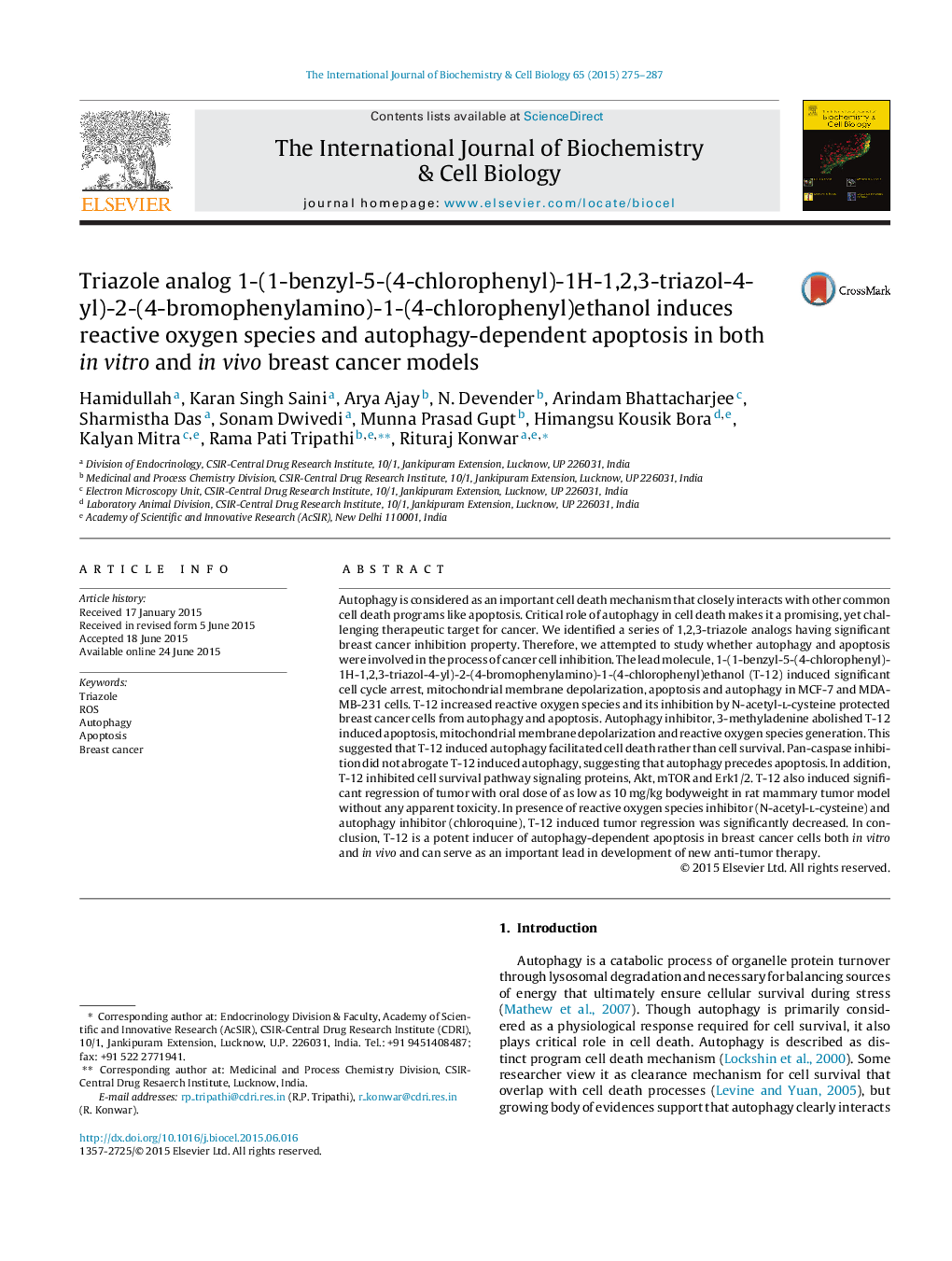| Article ID | Journal | Published Year | Pages | File Type |
|---|---|---|---|---|
| 1983490 | The International Journal of Biochemistry & Cell Biology | 2015 | 13 Pages |
Autophagy is considered as an important cell death mechanism that closely interacts with other common cell death programs like apoptosis. Critical role of autophagy in cell death makes it a promising, yet challenging therapeutic target for cancer. We identified a series of 1,2,3-triazole analogs having significant breast cancer inhibition property. Therefore, we attempted to study whether autophagy and apoptosis were involved in the process of cancer cell inhibition. The lead molecule, 1-(1-benzyl-5-(4-chlorophenyl)-1H-1,2,3-triazol-4-yl)-2-(4-bromophenylamino)-1-(4-chlorophenyl)ethanol (T-12) induced significant cell cycle arrest, mitochondrial membrane depolarization, apoptosis and autophagy in MCF-7 and MDA-MB-231 cells. T-12 increased reactive oxygen species and its inhibition by N-acetyl-l-cysteine protected breast cancer cells from autophagy and apoptosis. Autophagy inhibitor, 3-methyladenine abolished T-12 induced apoptosis, mitochondrial membrane depolarization and reactive oxygen species generation. This suggested that T-12 induced autophagy facilitated cell death rather than cell survival. Pan-caspase inhibition did not abrogate T-12 induced autophagy, suggesting that autophagy precedes apoptosis. In addition, T-12 inhibited cell survival pathway signaling proteins, Akt, mTOR and Erk1/2. T-12 also induced significant regression of tumor with oral dose of as low as 10 mg/kg bodyweight in rat mammary tumor model without any apparent toxicity. In presence of reactive oxygen species inhibitor (N-acetyl-l-cysteine) and autophagy inhibitor (chloroquine), T-12 induced tumor regression was significantly decreased. In conclusion, T-12 is a potent inducer of autophagy-dependent apoptosis in breast cancer cells both in vitro and in vivo and can serve as an important lead in development of new anti-tumor therapy.
